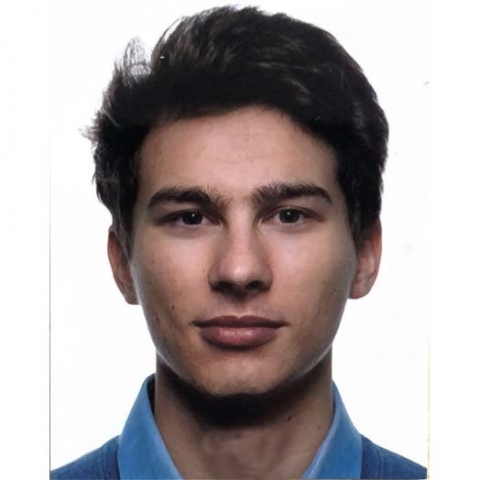Jonathan Reiss – Toni & Hans Schierling Undergraduate Scholar
Undergraduate Scholar, Physics and Mathematics
Georgetown University
Research:
Current superconductors used in quantum computers and particle accelerators must be supercooled to maintain their property resulting in large cooling energy requirements. This research in holographic superconductivity will attempt to understand the nuclear physics, which sets the temperature at which a material becomes superconducting and what features of a material one would need to fine tune to create a room temperature superconductor.
How Will Your Research Benefit Society?
My research focus here is in holographic superconductivity. Superconductivity, a phenomenon in which a material can transmit a current without resistance, is used in a wide variety of applications from quantum computers to particle accelerators. However, current superconductors have to be cooled to very low temperatures in order to exhibit their superconducting property. It has been an open question whether room temperature superconductors, i.e. materials which don’t need to be cooled in order to be superconductors, can be created. Such a material would revolutionize the way we transmit energy, making any technology which uses electricity incredibly energy efficient, decreasing electricity consumption while opening up new renewable energy options, and enabling a variety of new technologies including new transportation options. My research in holographic superconductivity fits into this narrative by attempting to understand what sets the temperature at which a material becomes superconducting and what features of a material one would need to fine tune in order to get a room temperature superconductor.
How will an ARCS Award Benefit Your Research?
The ARCS award will benefit my research progress several fold. It will:
- allow me to focus fully on the research for my two bachelors’ theses, without needing to work two jobs;
- give me the option to attend conferences to present my research and meet other researchers and potential collaborators;
- enable me to cover the travel costs to the University of Maryland, where I plan on taking a third year PhD course on current research methods in physics; and
- help me cover submission costs to journals for publishing papers as a result of my thesis research.
Career objectives:
Research Professor in Theoretical High Energy Physics, focusing on holographic duality and beyond the standard model physics.

